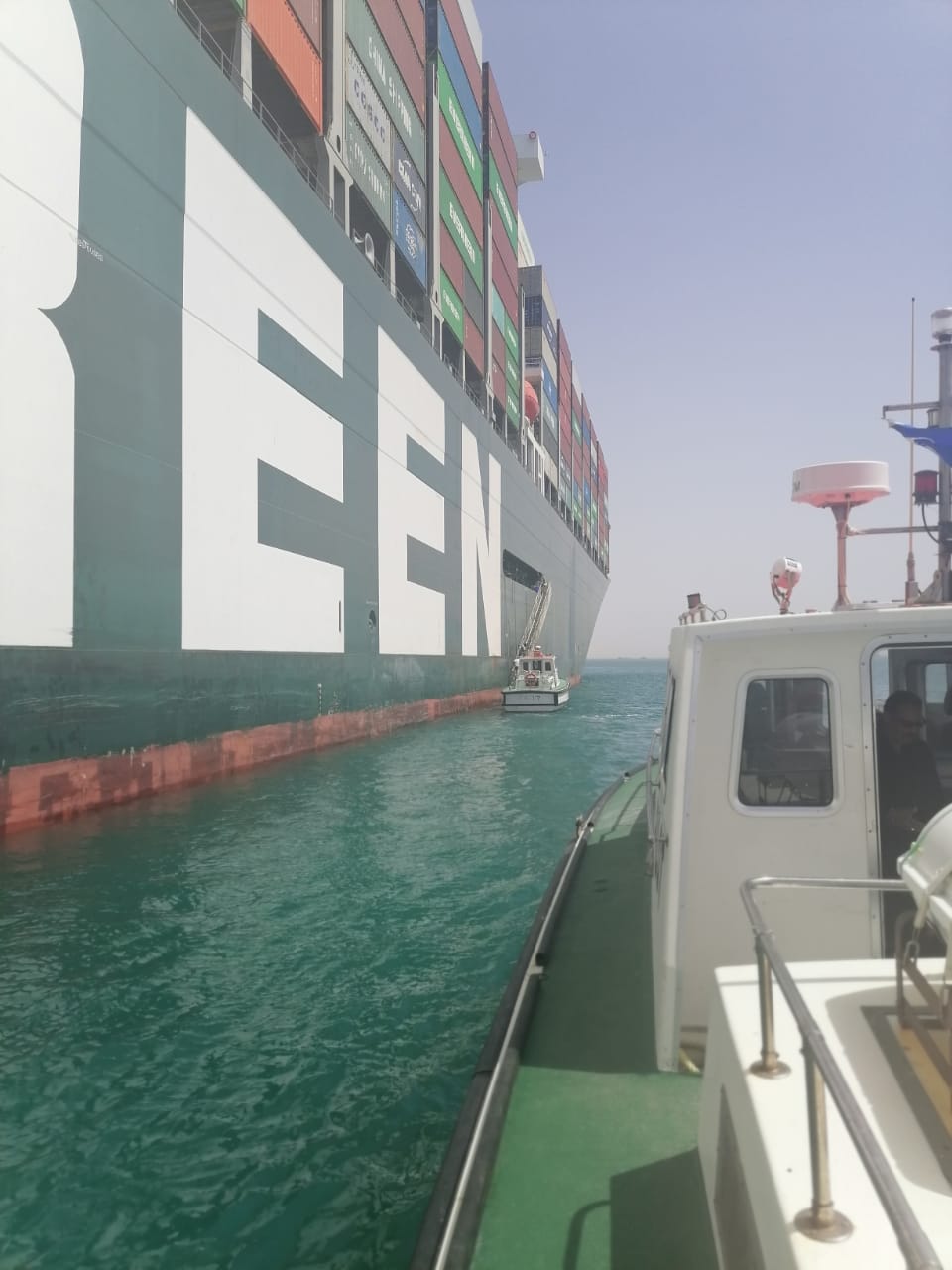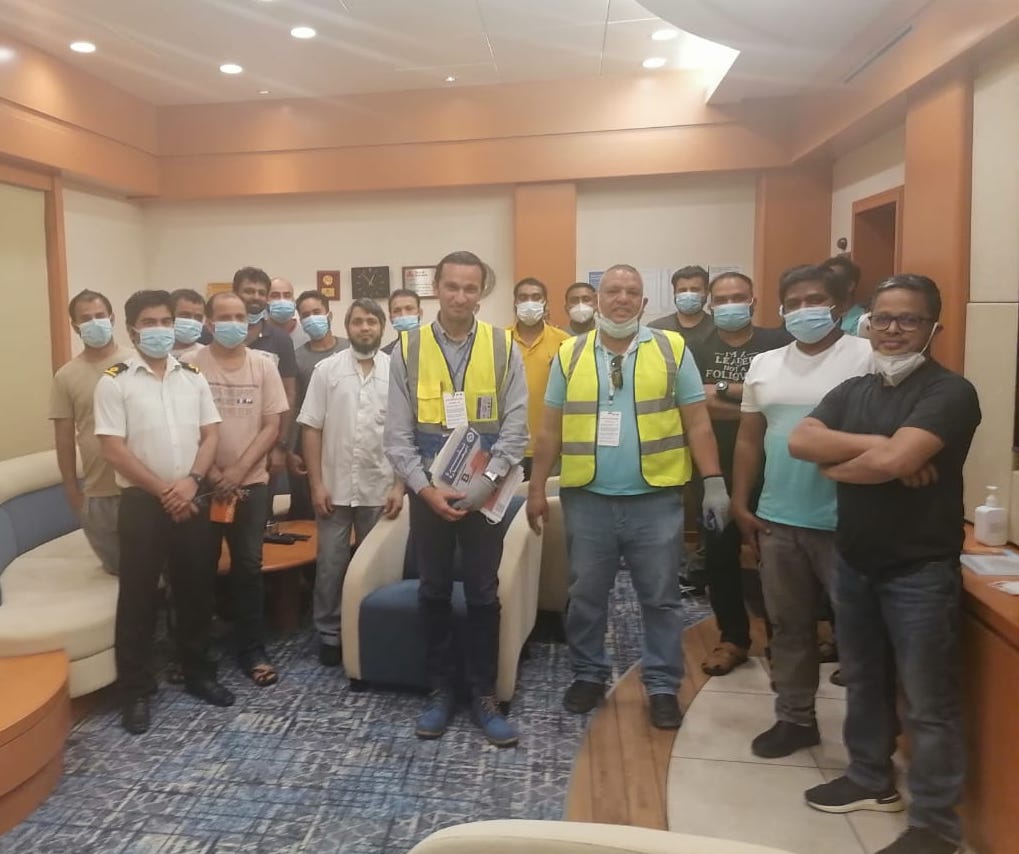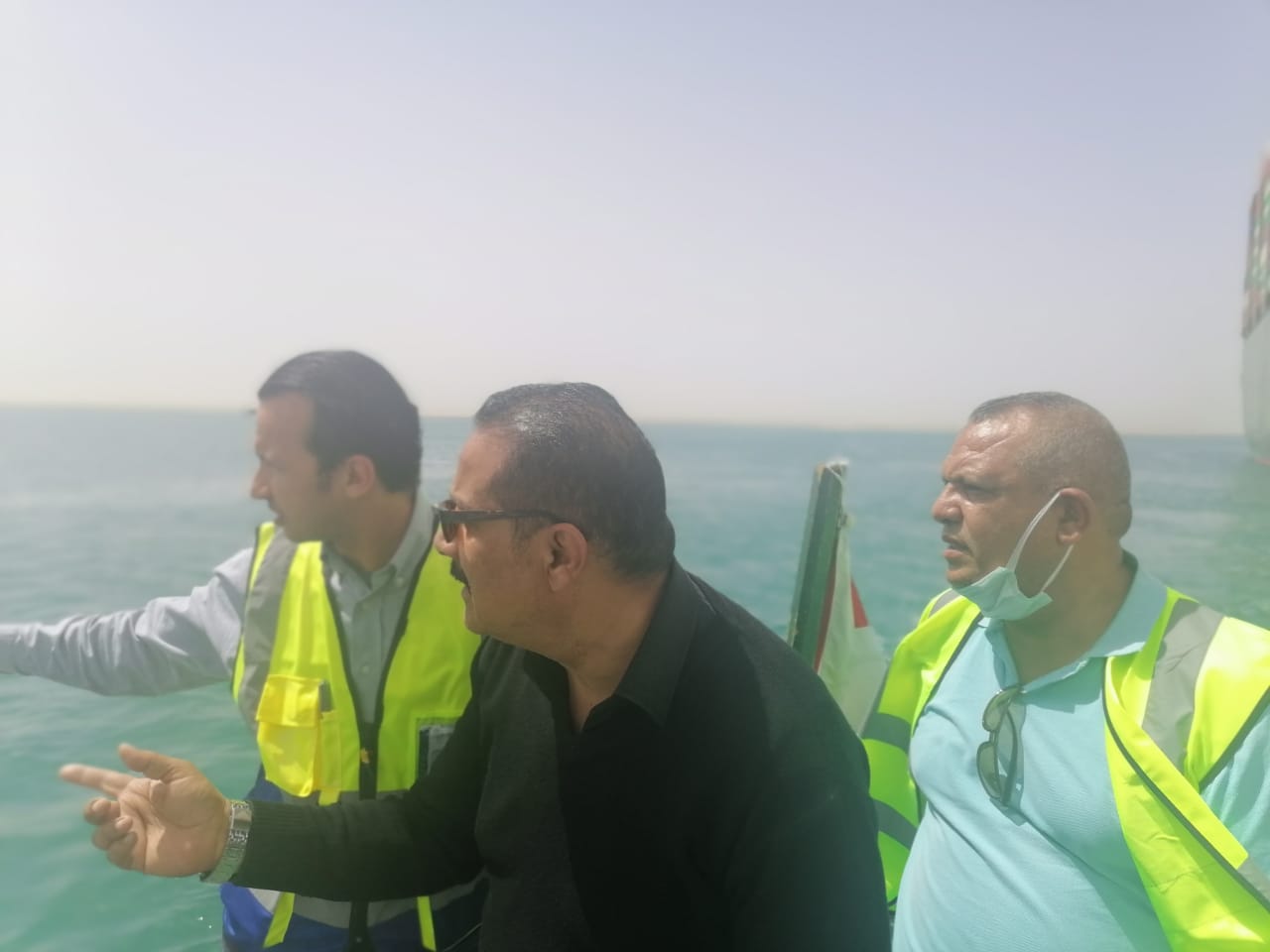Representatives of the International Transport Workers’ Federation (ITF) Sunday boarded the MV Ever Given (IMO: 9811000) to check on the health and welfare of the crew. The cargo vessel is currently anchored in Lake Bitter, in the Suez Canal system, as Egyptian authorities and the vessel’s insurer argue over damages claims.
Crew in good spirits
ITF Arab World and Iran Network Coordinator Mohamed Arrachedi worked closely to have the two ITF contacts in Egypt to board the vessel and perform welfare checks on the crew under his direction.
“We are pleased to inform the world that the crew of the Ever Given is in good spirits, and doing well. The crew were pleased to see ITF Egyptian union officials, who greeted them and expressed the solidarity of the global seafaring family,” Arrachedi said.

“The crew are understandably sensitive at moment, as they wait to see the what will happen with arguments between authorities and other parties. They are eager to sail, or know that they will be able to go home and see their families if the ship cannot leave Egypt soon. They are relieved to know the ITF is on their side.”
Mr Arrachedi said that no seafarer wages or contract violations were found by the ITF representatives, and all crew had received their wages for March. He said the crew had sufficient food provisions. The ITF delivered devices for the crew to connect to the internet.
“We have been in contact with the crew and there were no welfare issues raised for the time being. We continue to monitor the situation and the crew know we are available to support where needed, ” said Arrachedi.

Egypt must let seafarers go - NUSI
The seafarers are represented by the National Union of Seafarers of India (NUSI), which has been advocating for them with employers and Egyptian authorities.
NUSI General Secretary Abdulgani Y Serang called on Egyptian authorities to allow the release of the crew as per their normal contract conclusions and not keep crew onboard.
It has been unclear if the Indian crew will be allowed to leave via Egypt, as arguments continue between the ship’s insurer and the Suez Canal Authority. The authority is claiming USD $916 million in damages from the UK P&I Club, which insured the Ever Given.
“We urge Egyptian authorities to make clear that all of the Ever Given 25 crew will be allowed to leave at the normal conclusion of their contracts. We cannot have a situation where the crew are effectively being held hostage as financial negotiations that do not concern the seafarers continue between parties.”
Mr Serang said the union was prepared to fight any accusations that seafarers were to blame for the events leading to the Ever Given’s blockage of the canal. He believed that investigations would clear the seafarers’ professionalism.

Crew must be given fair go
ITF Seafarers’ Section Chair David Heindel said the past year had been tough for seafarers and continues into this year.
“First the pandemic and then the crew change crisis turned seafarers’ lives upside-down, especially when governments brought in blanket travel and border restrictions. Some seafarers have been trapped working on the same ships for more than a year beyond their initial contracts,” said Heindel.
“We should remember that it was seafarers who kept the world running through the worst of the health and economic crises we faced from Covid. Many of those seafarers would rightly feel pretty angry if, after all their sacrifice, their profession is unfairly associated with an event clearly beyond their control.”
“It’s time to treat seafarers as key workers with the respect they deserve – and we can start by getting each and every crew member from the Ever Given home to their families at the conclusion of their respective contracts.”
“Sadly, getting home on time is a contractual right and human right that another 200,000 seafarers are still being regularly denied because of governments’ lack of understanding of maritime industries, and the need to have fresh crews onboard. We can’t inflict that punishment on a further 25 seafarers,” said Heindel.
END
Notes:
- In March, ITF General Secretary Stephen Cotton confirmed on behalf of the ITF that the “crew of the Panamanian-flagged Ever Given were not yet over-contract, and all were onboard for less than six months”;
- Photos are available of the ITF contacts meeting with the seafarers;
- To protect crew welfare and privacy, the ITF will not be arranging interviews with crew themselves.
About the ITF: The International Transport Workers’ Federation (ITF) is a democratic, affiliate-led federation recognised as the world’s leading transport authority. We fight passionately to improve working lives; connecting trade unions from 147 countries to secure rights, equality and justice for their members. We are the voice for nearly 20 million working women and men in the transport industry across the world.
Media contact: media@itf.org.uk +44 20 7940 9282
